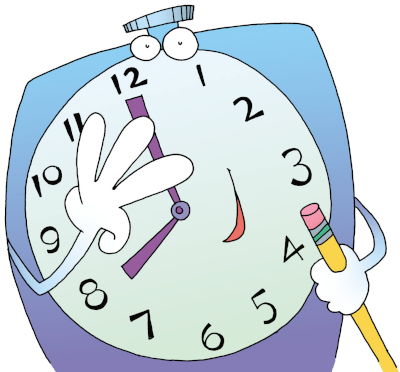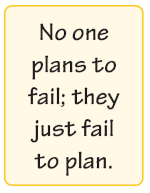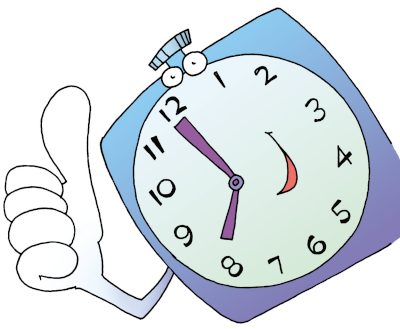Page 409
Completing Assignments

How do you get to school? Do you walk, or ride a bus, or get a ride from someone else? You probably can’t get there in a single jump. You have to take steps, but you get there.
It’s the same way with learning. You can’t learn everything about science in a single jump, but you can learn little by little. You can’t become a great quarterback with a single throw. You practice and get better.
This chapter helps you take those learning steps. You’ll discover ways to plan your work and complete assignments. Step by step, you’ll become smarter and more successful. It’s as easy as 1, 2, 3.
What’s Ahead
WE 410
Page 410
Setting Goals

Before you started school, you set goals for yourself all the time—like learning to ride a bike or dribble a basketball.
And you’re still setting goals—like learning to play an instrument, earning money to buy something, or getting a good grade on your next test.
Some Helpful Guidelines
1. Be realistic.
Learn to set realistic goals. Can you learn to play a guitar in a day? Of course not. Some goals can be achieved only one step at a time. For example, your goal might be to learn one guitar chord a day for a week. Or if you play a sport, you might try to improve just one specific skill at a time.
2. Work toward your goals.
Continue working toward your goals—no matter what happens! If you choose to keep a journal, set aside a specific time each day to write in it. If you want to improve in a certain sport, talk to your coach, a parent, or a friend about how to do it. Then practice often.
Tip Remember, there will be times when you won’t be able to write or practice—when you are sick or on vacation, for instance. Find another time to make it up.
3. Reward yourself.
Whenever you reach a goal, reward yourself in some way. Let’s say you’ve decided to keep a daily journal. When you have written in your journal every day for two weeks, do something special or share your success with a parent or teacher.
WE 411
Page 411
Managing Your Time
If you’re like many students, you have a limited amount of time and lots of things to do. The best way to make sure you get everything done is to use a planner.
Daily Planner 🟪 In a daily planner, you can list assignments you have for each day. Your planner may be a simple list.
|
Monday, May 6 |
Tuesday, May 7 |
|
English |
English |
|
Read page 102. Write a topic sentence. |
Write a paragraph using my topic sentence. |
|
Math |
Social Studies |
|
Do workbook page 16. (Test tomorrow) |
Finish question sheet for tomorrow. |
|
Social Studies |
Science |
|
Answer question sheet by Wednesday. |
Collect five different leaves; take to class. |
Weekly Planner 🟪 A weekly planner is a schedule of all the important things you have to do during a week.
|
Before School |
School |
After School |
Evening |
|
|
Mon. |
Make a lunch for field trip |
Field trip |
Open gym |
Study math |
|
Tues. |
Take garbage out |
Math test |
Do homework |
Guitar practice |
WE 412
Page 412
Doing Your Assignments

Plan Ahead
- Write down exactly what your assignment is and when it has to be done.
- Figure out how much time you’ll need to complete your assignment. Write down study times in your planner.
- Get the phone number or email address of one or two students in your class. Ask if you can contact them when you have a question about an assignment.
- Gather all the materials you need to complete your assignment: paper, pens, notebook, handouts, handbook.
Do the Work
- Find a time that works best for you.
- Work in a quiet place where you won’t be interrupted.
- Read over your assignment carefully so that you know exactly what to do.
- Set goals. How much will you get done before you take a break? How much will you get done today? Tomorrow? Stick to your plan!
- Keep a list of questions to ask a classmate or your teacher.